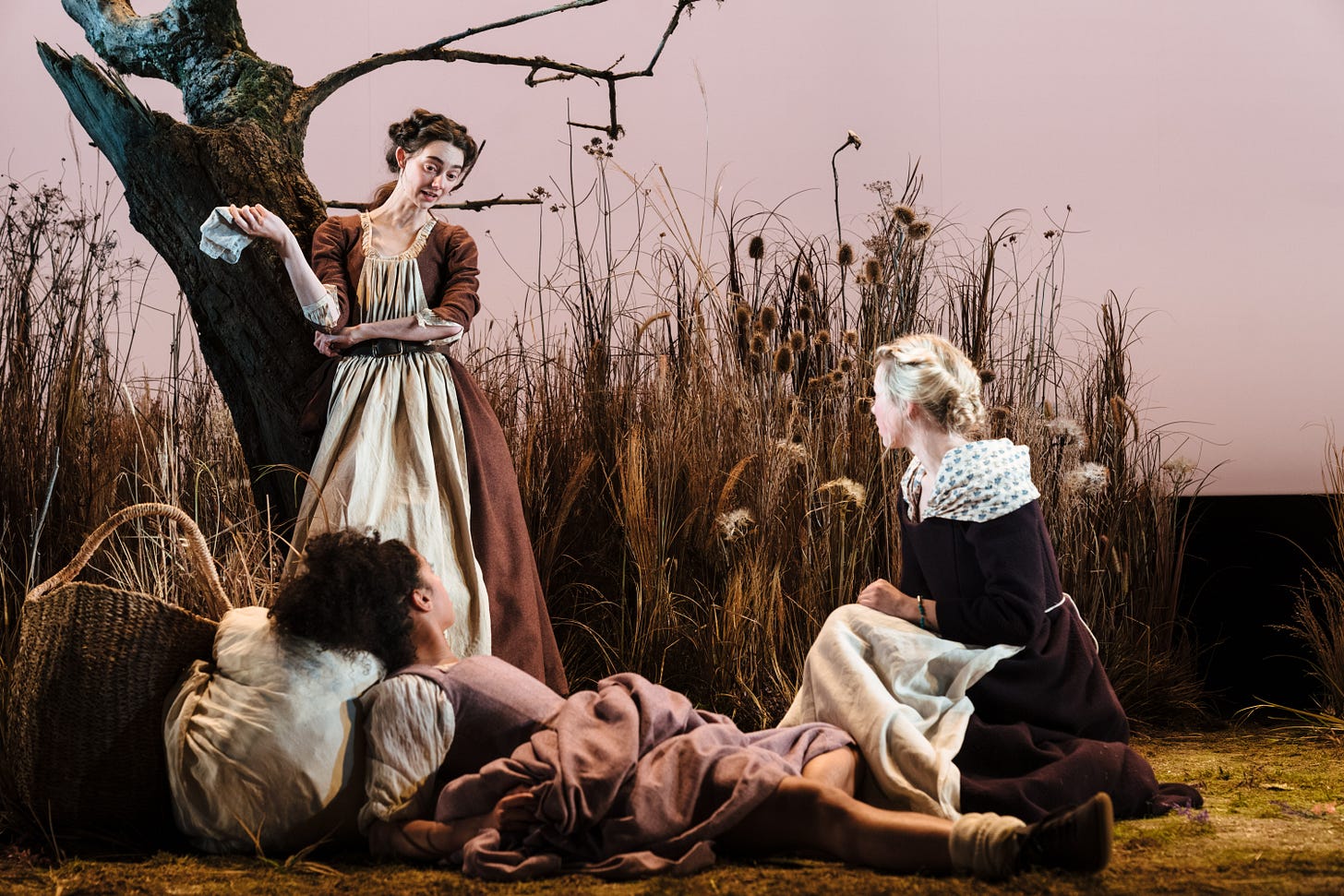I feel very tired.
What I’ve seen
I haven’t been able to stop thinking about 1536 at the Almeida.
Ava Pickett’s debut play, which runs to June 7 (she has written for screen often, on shows as diverse as The Great, The Buccaneers and Brassic), imagines the conversations had between three rural Essex girls, really, on the emotional cusp of womanhood (regardless of how sexually active they may or may not already be), as news filters through Tudor England of the arrest, trial and subsequent execution of Anne Boleyn.
Through them she explores the power dynamics between men and women, and the way that men have historically maintained social dominance through the threat of violence and sexual coercion, and by wielding the invisible but razor sharp weapon of morality. Sound familiar?
Mariella (Tanya Reynolds) is a midwife, working with her grandmother - a good job, but a risky one in a time when a woman’s (quite likely) death in childbirth could be blamed on her if the husband felt so inclined. The innocent Jane (Liv Hill) works on her father’s farm, while Siena Kelly’s free-spirited Anna (the play, and a number of early scenes kick off with her and a local lad from a wealthy family in the throes of al fresco sex) is a domestic servant, given dangerous license by her master whose life she once saved.
They have never left their little town, never seen London, never seen the King and yet his actions send destabilising shockwaves through them and their tiny community.
Henry is like a slow-burn toxic online influencer, though it’s impossible here not to associate him too with the Trump effect - when a person in an elevated social position behaves in a certain way, others feel that they have the license to behave that way too, and the men’s attitude towards the women, already hardly tender except when it suits them, hardens palpably as the details of the case made against ‘The Great Whore’ become known. Their gleeful response when she’s finally dispatched is horrifying.
All the performances are great. You fully believe in the fractious fondness of these girls’ friendship, forged in a place where you have very few people to choose from. The two male actors, Adam Cooper as Mariella’s lost love William, who has married higher up the rickety social ladder, and Adam Hugill as the swaggering Richard, secretly shagging Anna while betrothed to the virginal Jane, expertly express the disdainful entitlement and vicious misogyny as it bubbles closer and closer to the surface of even the seemingly sweetest Tudor dude.
Pickett’s script is engaging and vivid. Speaking mostly in a sweary contemporary idiom peppered lightly with Tudorisms (“babe” instead of “baby”, that kind of thing) the girls bicker, encourage and take the piss out of each other. But Pickett highlights the way we gloss over the uncomfortable - “He’s a good man” they say aimlessly about various men of the town, an increasingly meaningless appellation that becomes horribly laughable when one of them proves to be a violent rapist.
Keep reading with a 7-day free trial
Subscribe to The London Culture Edit to keep reading this post and get 7 days of free access to the full post archives.





